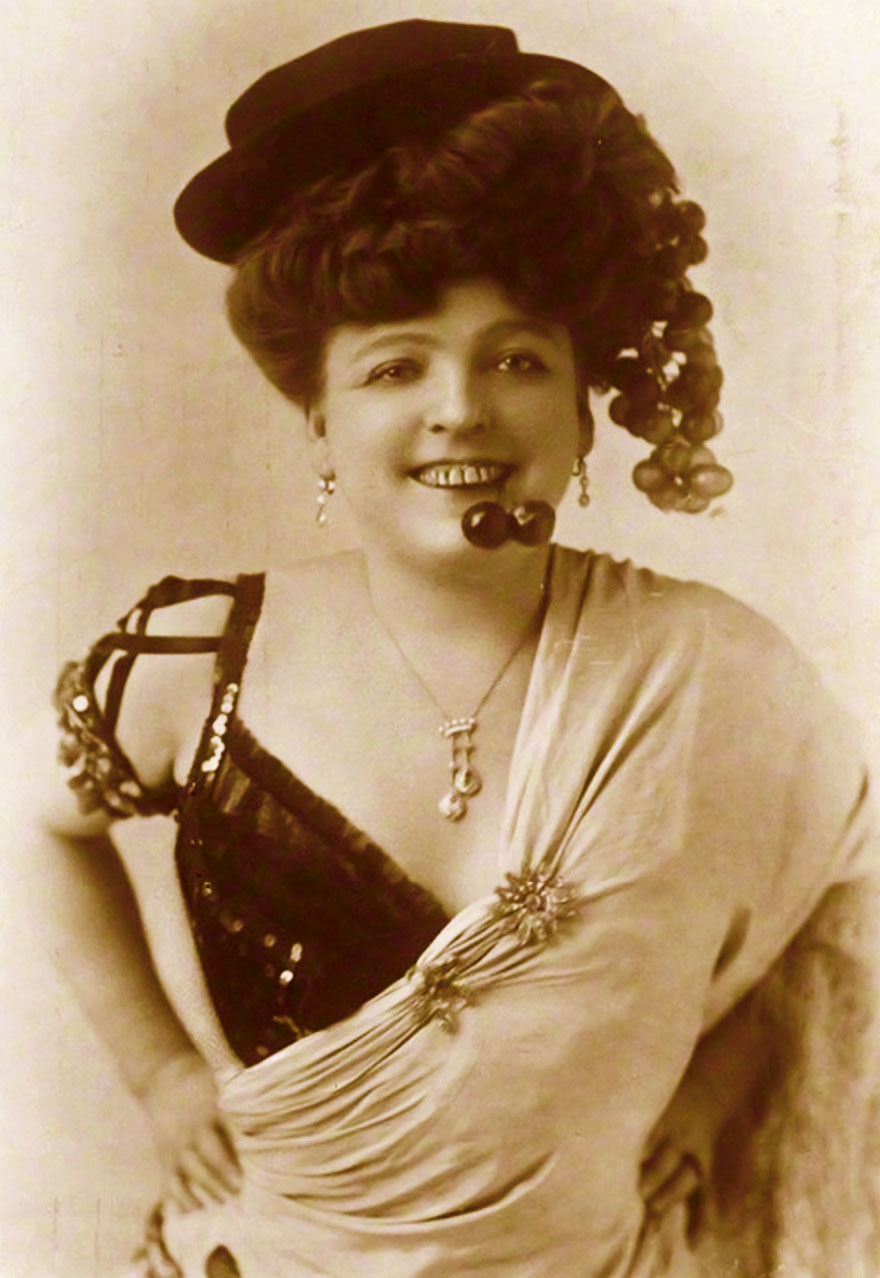
A Â鶹´«Ã½Ó³»time travelogue brought to you by .

Marie Lloyd was a top headliner on the English Music Hall scene for nearly four decades. The âCockney comedienneâ wore elaborate gowns and expensive jewels, but was thoroughly working class in her sympathies and outlook. Her stage career began the year Â鶹´«Ã½Ó³»incorporated, and she shot to fame almost overnight, largely because her larger-than-life persona and the material she performed resonated with the working class, especially women. Off the stage, she supported a successful  of lesser-known performers and theatre workers by manning picket lines, performing at fundraisers, and helping to bankroll the strike fund, even though her stardom meant the strikersâ grievances didnât affect her personally.
The tour of the Sullivan and Considine vaudeville circuit that brought Marie Lloyd to Â鶹´«Ã½Ó³»got off to a rough start. She found herself detained at Ellis Island in New York for twenty-four hours on a charge of ââ because she had not yet married her travelling companion as she had claimed when coming into the US. Eventually she was released and allowed entry for the duration of the tour on a large bond and a promise that she and her fiancé (who had been charged under the ââ) would stay in separate accommodation while on US soil. When a journalist asked what she thought of America so far, Lloyd pointed to the Statue of Liberty and said âI love your sense of humour!â
Marie Lloyd opened her Â鶹´«Ã½Ó³»engagement on February 2, 1914 at the . The mayor and other city officials and their wives were invited to opening night, which in hindsight wasnât the best idea. The papers are light on the offending details, but Lloydâs stage act was notorious for its risqué themes, suggestive language, and Lloydâs masterful ability to imbue material with a naughty meaning using a well-placed wink or gesture. She always insisted that âblueâ interpretations of her songs originated in the mind of the listener, but with  âsheâd never had her ticket punched beforeâ  about a farmerâs daughter taking the train into town for the first time, her denials seem disingenuous. Indeed, Lloydâs talent for subverting the lingering and stifling Victorian morality of the era largely explains her popularity.
Mayor Baxter and other officials in the audience were aghast at Lloydâs opening night performance, which included âThe Ankle Watch,â a song  as âthe way a watch, plus a slashed skirt, would awaken a general masculine interest in the passing of time.â One official  that he was ashamed that he brought his wife to the show and was only consoled by the presence of other respectable officials. Charley Jones, the City License Inspector, was directed by the mayor  to drop two songs and to give a âless vivid rendering of othersâ to avoid having her show cancelled altogether.
Former and future Â鶹´«Ã½Ó³»mayor and publisher of the World, LD Taylor, was also in attendance on opening night. In an editorial the next day, Taylor  a scathing denouncement of Marie Lloyd and commended Mayor Baxter for taking decisive action. In response, Lloyd paid a visit to the  and physically . Police were called and forcibly removed her in front of a huge crowd that had gathered outside. The fact that the Orpheum didn't advertise in the World may help explain Taylor's heightened indignation over the performance.
Lloyd begrudgingly complied with the Cityâs specific demands, but she didnât do so quietly. From her platform on the Orpheum stage all that week, she let the full houses know just what she thought of the mayor and, he claimed, she had found new ways âbe offensive to good taste.â In a pre-emptive move, Mayor Baxter had her final performance cancelled, alleging that she was planning to âgive some repertoire that would make Â鶹´«Ã½Ó³»âsit up and take notice.ââ News of the cancellation didnât reach the Orpheum until after the show had sold out and the seats were full. Lloyd unsuccessfully fought to go on anyway and bit one of the men restraining her.
To make matters worse, Lloyd and her paramour found that escaping Â鶹´«Ã½Ó³»wouldnât be so easy. Immigration officers at the border claimed that by leaving the US for the Canadian leg of her tour, she had violated the terms of the bond agreement she had made at Ellis Island. Lloydâs protest at not being allowed into the US again reached all the way to Washington, DC, and she was eventually allowed to finish the tour, although she had to leave her fiancé behind.
Source: Marie Lloyd postcard ca. 1900, National Portrait Gallery #


